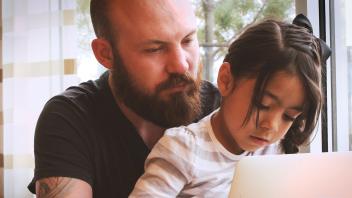I think my child may need special help in school. What do I do?
Begin by finding out more about special services and programs for students in your school system. Also find out more about the Individuals with Disabilities Education Act (IDEA). This law gives eligible children with disabilities the right to receive special services and assistance in school. These services are known as special education and related services. They can be important in helping your child at school.
What is special education?
Special education is instruction that is specially designed to meet the unique needs of children who have disabilities. This is done at no cost to the parents. Special education can include special instruction in the classroom, at home, in hospitals or institutions, or in other settings.
Over 5 million children ages 6 through 21 receive special education and related services each year in the United States. Each of these children receives instruction that is specially designed to:
- meet the child’s unique needs (that result from having a disability)
- help the child learn the information and skills that other children are learning
This definition of special education comes from the Individuals with Disabilities Education Act (IDEA), Public Law 105-17.
Who is eligible for special education?
Certain children with disabilities are eligible for special education and related services. The IDEA provides a definition of a “child with a disability.” This law lists thirteen different disability categories under which a child may be found eligible for special education and related services. These categories are listed to the right.
According to the IDEA, the disability must affect the child’s educational performance. The question of eligibility, then, comes down to a question of whether the child has a disability that fits in one of IDEA’s thirteen categories and whether that disability affects how the child does in school. That is, the disability must cause the child to need special education and related services.
IDEA’s categories of disability
- Autism Spectrum Disorder
- Deaf-Blindness
- Deafness
- Emotional Disturbance
- Hearing Impairment
- Intellectual Disability
- Multiple Disabilities
- Orthopedic Impairment
- Other Health Impairment
- Specific Learning Disability
- Speech or Language Impairment
- Traumatic Brain Injury
- Visual Impairment, including Blindness
How do I find out if my child is eligible for special education?
The first step is to find out if your child has a disability. To do this, ask the school to evaluate your child. Call or write the Director of Special Education or the principal of your child’s school. Say that you think your child has a disability and needs special education help. Ask the school to evaluate your child as soon as possible.
The public school may also think your child needs special help, because he or she may have a disability. If so, then the school must evaluate your child at no cost to you.
Excerpted from: Questions Often Asked by Parents about Special Education Services. (September, 1999). NICHCY Briefing Paper. National Information Center for Children and Youth with Disabilities.
